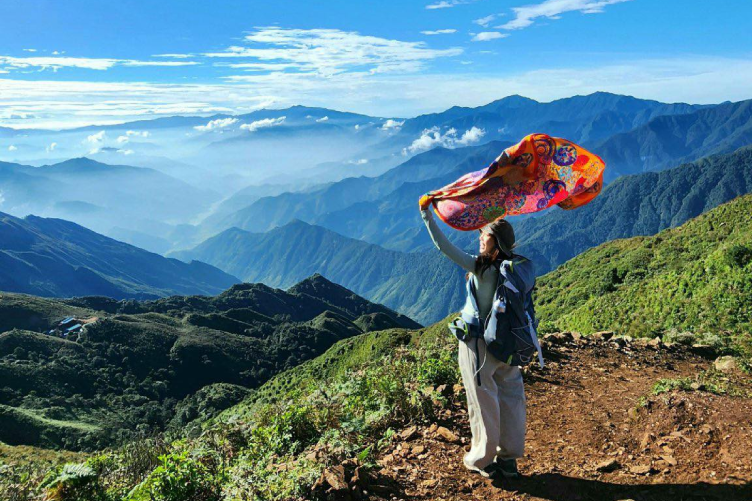
30km from Dien Bien Phu city, Tia Lo village is home to 151 households of H’mong ethnic people. Previously, the work of hunger eradication and poverty reduction in the village faced many difficulties. However, the situation has changed after Tia Lo village was selected by the People's Committee of Dien Bien Dong district to pilot community tourism development.
This village has favorable natural conditions to develop tourism as it is surrounded by Phu Lung mountain range, and has the Noong U lake with an area of more than 5 hectares, a cool climate all year round because it is located at an altitude of over 1,000 meters above sea level. This area also has many old pine forests, creating a beautiful landscape.
The Dien Bien College of Economics and Technology has coordinated with the continuing education and vocational education centers in Dien Bien to organize short-term training courses for ethnic people to promote ethnic cultural values associated with tourism development.
Local households then began to renovate their houses, gardens to offer homestay services so that tourists can sleep and rest when visiting their village.
They have also built check-in models right in their garden. With ingenuity and creativity, local people have created ideal check-in locations, along with models and tools familiar to the daily life of the H’mong people, such as khen, pipe plow, traditional houses…
Dien Bien Dong district has set a plan on developing experiential tourism in Tia Lo village to 2025, with a vision to 2030. It is expected that tourism can bring high income to the villagers and is also a way to preserving the traditional culture of the local H’mong people, aiming for sustainable development, hunger eradication and poverty reduction, and connecting local ethnic communities.
To develop experiential tourism in Tia Lo village, local residents are advised to prepare houses, toilets, decorate fences, and clean internal roads. Currently, there are 5 households piloting community tourism development in Tia Lo village.
Mr. Cha A Mua, a Tia Lo villager, said that community tourism helps tourists know more about his H’mong village. Mr. Mua was very excited to learn about experiential tourism and has built check-in points right in his garden to serve tourists.
In Noong U commune, many classes teaching experiential tourism have been held for residents of Tia Lo village, especially young people, who are all farmers.
Mr. Ho A Senh from Tia Lo village said that up to now, his family has only earned revenue from livestock farming. However, livestock farming activities are highly dependent on weather and diseases, and output is fragmented, so the economic value is low.
In 2023, Mr. Senh’s family registered to participate in the pilot program to develop community tourism. He then built a new house connected to the old one, expanded the housing area, and cleaned the house to serve tourists. This community tourism model helps Mr. Senh’s family improve their income.
For many years, Dien Bien Dong district has invested in transportation infrastructure, built tourism products to create unique highlights. At the same time, it has focused on restoring and proposing recognition of. national intangible cultural heritage for traditional ethnic festivals in the area.